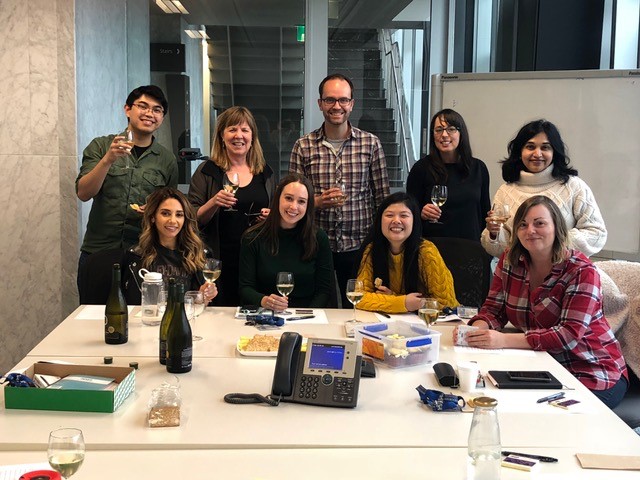It Takes a Village
By Ai Ming Chow
PhD candidate Ai Ming Chow reflects on her time at the university of Melbourne, and the life-lessons she has found in the course of undertaking her research.
There is an African proverb that says, ‘It takes a village to raise a child’. As a third-year doctoral student with the Department of Management and Marketing, I would paraphrase that saying to: ‘It takes a village to complete a PhD’. Looking back at the past three years of my time as a doctoral student, I am most grateful for the invaluable opportunities to engage with the different communities who have, in some shape or form, contributed to and shaped the trajectory of my research.

My current PhD research focuses on exploring the opportunities and tensions within the Indigenous arts markets in Australia. To understand more about the histories and cultures of the First Nations people, I had the great privilege to participate in a field-trip intensive subject, Indigenous Development Perspectives, offered by the School of Social and Political Sciences. As a small group of 15 students, we lived in the remote community of Hermannsburg (Ntaria), Northern Territory, which is the birth place of the famous and influential Aboriginal artist, Albert Namatjira. We had meetings and round-table discussions with government and NGO representatives, as well as the Elders in the community, to explore contentions around development as experienced by Australia’s First Nations peoples. These conversations were often confronting, but humbling as we were able to witness the strengths, resilience and hope demonstrated by the Indigenous community members towards the future of Australia’s Indigenous peoples, particularly the youth.
After the field-trip, I returned to Melbourne with a different sensibility towards my own research design and my position as a non-Indigenous researcher. I could feel the weight of the issues and challenges experienced by Australia’s Indigenous peoples. More importantly, I was exposed to the layers of complexities inherent within the Indigenous cultures and their arts markets.
It further spurred me to delve deeper into the research area from the perspective of Marketing, while acknowledging that it is not a research problem that I could solve on my own. Fortunately, I have the unwavering support of my supervisors, Professor Julie Ozanne and Dr Michal Carrington, as we continue to navigate the research terrain with as much care and wisdom as possible. We also have a supportive network of researchers and scholars within the department, who come together every week for our ‘Qual Design Studio’ to discuss problems, struggles and challenges in conducting qualitative research.

The Qual Design Studio (QDS) is a gathering of doctoral students, along with early and senior academic members of the faculty. Qual Design Studio has become a safe space for us as doctoral students to peek behind the curtain of conducting high quality research and publishing in leading journals. We also had the opportunity to learn from visiting scholars and more senior academics in an intimate setting, where we examined the issues of reflexivity, and learnt the tricks of conducting field work and managing large corpus of data. It is a community of practice which provides ongoing support for us to explore the craft of conducting qualitative research that generates knowledge for the advancement of the public wellbeing and betterment of society.
Inspired by the community of scholars within the department, I was accepted to attend a conference titled ‘Transformative Consumer Research’ at Cornell University, where doctoral students, researchers and practitioners from all over the world came together to discuss possible ways to increase the societal impact of our research. I became a part of a research track that focuses on exploring the potential of using Arts-Based Research methods in business research.
From field-trip subject, to Qual Design Studio, to international conference, I cannot be more excited that I am supported by a village of people who are passionate for solving problems together.
Having found myself surrounded by like-minded people has been especially valuable to my journey and growth as a doctoral student. For those who are considering the PhD program with the department, I hope you are prepared to be challenged and transformed, but please be assured that there will be people waiting to embrace you, and welcome you into the community with open arms.